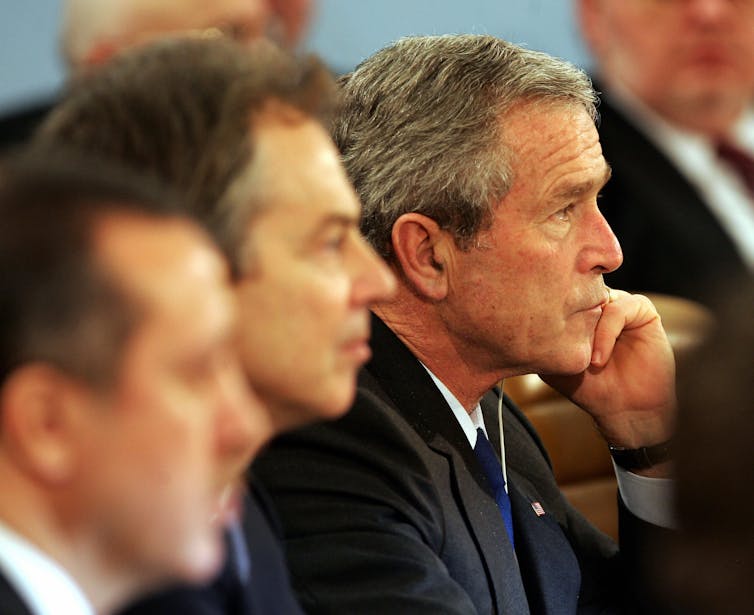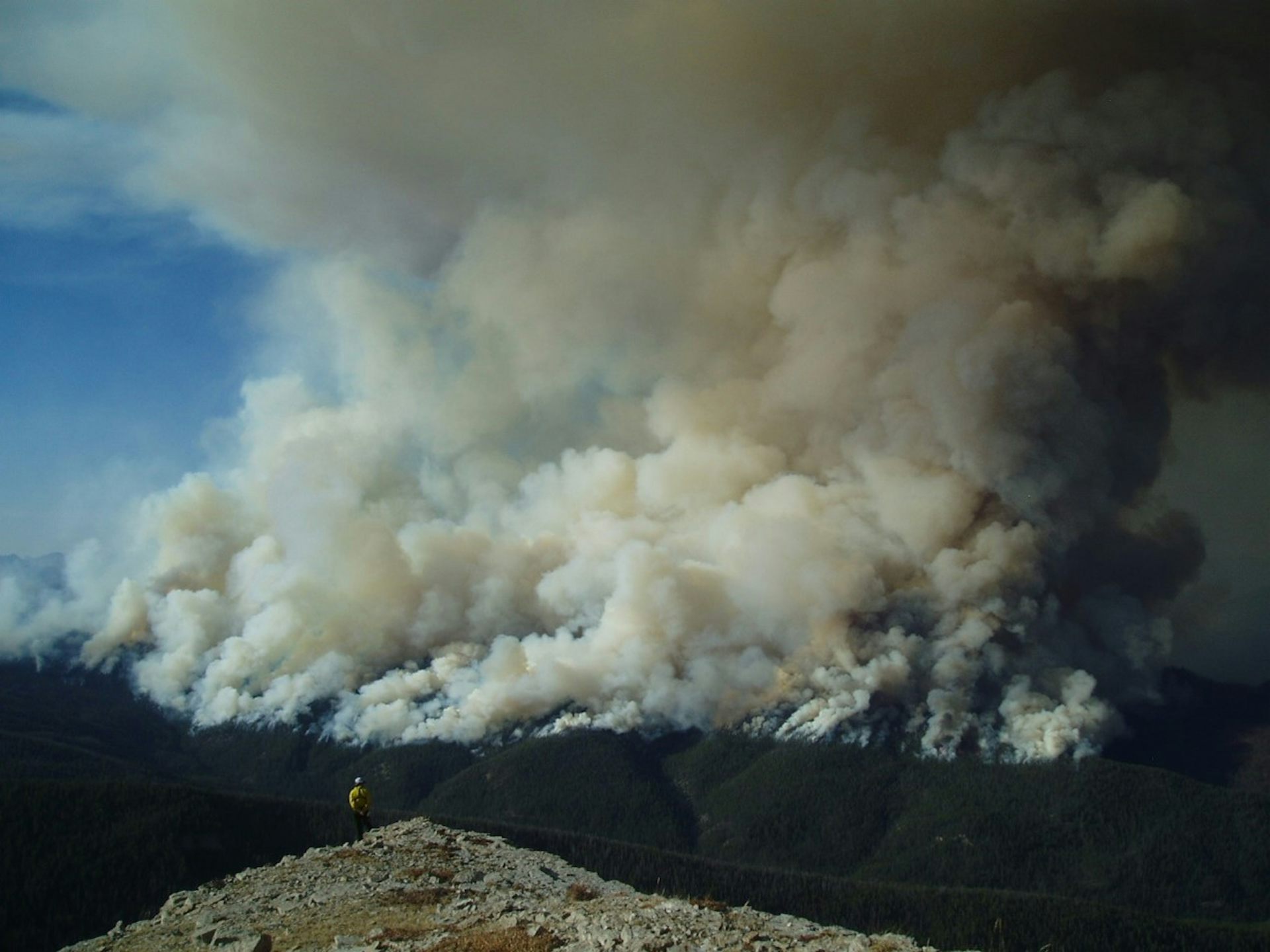As debate approaches, presidents are blamed for events over which they have little control
Most efforts to project how well a candidate will do in an election are based largely on factors over which presidents have little to no control.

Presidents are blamed for just about everything – especially during an election season. As the presidential debates of 2024 begin, the blame game is certain to be part of the spectacle. But presidents are not really responsible for as many things as voters, journalists or political opponents try to blame them for.
For the first time since 1912, a former president is a party’s presumptive nominee, running against the incumbent. Both men – Donald Trump and Joe Biden – have records from their time in the Oval Office of actions they have taken or not taken, and of problems they have been blamed for, whether they had any control over them or not.
In my own discipline of political science, there is a cottage industry of trying to predict presidential elections. These efforts look at a wide range of factors that, rightly or wrongly, are associated with, attributed to or blamed on the president, including the performance of the stock market, unemployment rates, consumer sentiment about the economy, and a variety of other measures related to economic output.
But these scholars, like the public at large, are trying to gauge how well a candidate will do based largely on factors presidents have little to no control over.
Making promises means taking the blame
The public demands action, and candidates promise it, but the presidency is an impossible office. It combines outsized expectations – which presidents themselves have embraced by campaigning as the voice of the whole country – with highly constrained political power in a system distinguished, currently, by gridlock.
At the debates, both Trump and Biden will likely speak of their records and make promises about what they would each do in their prospective second terms. But those goals will be largely out of reach without the support of Congress, which usually requires one party to hold both a majority in the House and a filibuster-proof majority in the Senate. This is an unlikely outcome for either Biden or Trump.
The public pays little attention to the area where presidents have the most direct authority: foreign affairs.

Is it the economy?
In the current election campaign, the state of the national economy will undoubtedly be influential. But it is a complicated picture. Unemployment is low, the stock market is doing well, and inflation may be under control.
But higher prices are on voters’ minds. According to Gallup polling, the high cost of living is far and away Americans’ most important financial problem. A survey from April 2024 showed that 41% of the public volunteered that the high cost of living was their most important financial problem. That’s up 6 percentage points from when the same question was asked in 2023. In a distant second is the cost of housing.
In years past, the cost of living had hardly registered in the minds of Americans. From 2010 until 2021, the percentage of Americans identifying inflation as the most important financial problem was in the single digits. That percentage skyrocketed in 2022 and continued rising from there. This economic turmoil may be in the rearview mirror, but it has left much more expensive groceries on the shelves.
Recent evidence suggests that consumer confidence is on the rise. But that shift has not been beneficial to the incumbent president, because the public has not translated that to a more favorable view of Biden. It appears both that Americans are mildly optimistic about what is to come and that they remain jolted by the higher prices that took off in 2022.
Presidents can influence the economy, even without being able to control it. They can put into place a range of fiscal and regulatory policies, and can appoint Federal Reserve governors, who oversee monetary policy, including the widest-scale actions the government can take, including adjusting interest rates.
Additionally, presidents’ responses to crises, both domestic and abroad, may also shape how people feel about the economy.
While some studies have found that the economy performs better under Democratic presidents, the mechanisms are murky. One study concluded that the partisan differences in economic performance did not stem from different policy approaches but rather factors such as oil shocks, growth of defense spending and stronger economic growth abroad.
This imbalance between expectations of voters and limited powers of the presidency underscores the important role of presidential rhetoric and the media in linking presidents to the economy. Presidents often feel their economic accomplishments are undermined by the media. In December 2023, Biden implored reporters to “start reporting it the right way” when asked about the economic outlook.
What happens locally can color people’s views
The overall national picture isn’t the only view voters take. Many people form their views based on what they witness in their daily lives.
A decade ago, a colleague and I found that gas prices, home foreclosure rates and local unemployment levels in a voter’s community were influential in shaping their perceptions of the national economy, which in turn affects voting for president.
In other research, I’ve shown that factors like local unemployment, federal spending in one’s community and federal responsiveness in the aftermath of a natural disaster drive support for incumbent presidents among affected communities.
This research helps explain why Americans may not broadly agree about how well the nation is doing.
Some expectations are clearly unfounded
Voters – and experts – don’t always agree on the connection between government policies and actions and specific real-world outcomes. Did Trump’s immigration policies make the nation better off? Did Biden’s? These questions are not easily answered. Citizens rely on many sources, but especially the media, to figure out the connections and the results.
Voters also change their views of presidents for events well beyond a president’s control – such as when a local college football or basketball team wins a game right before an election, or even the occurrence of a natural disaster.
One study even found evidence that voters blamed President Woodrow Wilson for shark attacks off the coast of New Jersey in 1916.
Other research indicates that voters ignore long-term trends and instead base their votes primarily on events immediately preceding an election. For instance, the nation may see substantial economic gains over a president’s four-year term, but if growth slows or reverses before the election, the president may not reap the electoral benefits.
And partisan polarization means some voters may set aside their own knowledge and experience and blame the president, or a candidate, for almost anything.

Random events can showcase leadership or lack thereof
Election Day falls during hurricane season, and political news can be affected by a big storm.
In 2012, Superstorm Sandy hit the East Coast in late October as the presidential campaigns were in their final sprint. The storm gave incumbent President Barack Obama the chance to burnish his credential in ways both big – by coordinating the federal response – and small – by comforting the affected communities and meeting with Republican and Democratic leaders. Some research shows that Obama received votes based on his response to Sandy.
Presidents have no power to control the weather or to cause a natural disaster to strike a particular location. However, they do have control over the political response to the event. As my research shows, demonstrating leadership and even, on occasion, engaging in bipartisan cooperation can reveal information about the quality of an elected official and potentially influence votes.
It just goes to show that the election could be influenced more by a random act of Mother Nature in the fall than the debates in June.
Andrew Reeves does not work for, consult, own shares in or receive funding from any company or organization that would benefit from this article, and has disclosed no relevant affiliations beyond their academic appointment.
Read These Next
AI’s growing appetite for power is putting Pennsylvania’s aging electricity grid to the test
As AI data centers are added to Pennsylvania’s existing infrastructure, they bring the promise of…
Why US third parties perform best in the Northeast
Many Americans are unhappy with the two major parties but seldom support alternatives. New England is…
Abortion laws show that public policy doesn’t always line up with public opinion
Polls indicate majority support for abortion rights in most states, but laws differ greatly between…






